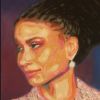10 Political Freedom Books That Shape Your Understanding
Recommended by Patrick Betdavid, Arnold Schwarzenegger, Steven Sinofsky — deepen your grasp of Political Freedom







What if your understanding of political freedom could shift dramatically with just a few well-chosen books? This question surfaced as global democracies face growing challenges, from creeping authoritarianism to debates over free speech. Political freedom isn’t just an abstract ideal; it’s a living, breathing reality that shapes the rights and responsibilities of individuals and societies alike.
Patrick Betdavid, known for his entrepreneurial insights, found Free to Choose reshaping his view on economic liberty and its political implications. Meanwhile, Arnold Schwarzenegger’s endorsement highlights how foundational economic ideas influence governance and freedom. Historian Steven Sinofsky regards The Machiavellians as a critical tool to grasp the complex power dynamics at play today, connecting historical theories to contemporary political struggles.
While these expert-curated books provide proven frameworks, readers seeking content tailored to their specific political background, experience, or learning goals might consider creating a personalized Political Freedom book that builds on these insights.
Recommended by Patrick Betdavid
Entrepreneur and CEO, 1.2M+ YouTube subs
“@ChrisKringle99 Great book if you can embrace the concept. He’s one of a kind.” (from X)
by Milton Friedman, Rose Friedman··You?
by Milton Friedman, Rose Friedman··You?
Milton Friedman’s decades as a Nobel laureate economist and presidential adviser culminate in this exploration of free-market dynamics versus government control. Co-written with Rose Friedman, this book examines how market forces shape equality, security, education, and economic stability, challenging conventional wisdom about regulation and inflation. You’ll find detailed discussions on the mechanisms that influence consumer protection and employment, with insightful analysis in chapters dedicated to education reform and inflation control. This book suits anyone interested in the interplay between economics and political freedom, especially those willing to question established policy approaches.
Recommended by Steven Sinofsky
Board Partner at a16z, Adviser at BoxHQ
“20/ The Machiavellians: Defenders of Freedom by James Burnham a must read book that I feel presents the most prescient description of where we are today and why and where we are heading. Really fascinating. Also, former Trotskyite.” (from X)
by James Burnham··You?
by James Burnham··You?
James Burnham's deep engagement with political theory and realpolitik led him to explore the enduring influence of Machiavellian thinkers whose ideas shaped modern political freedom. In this book, you gain a detailed understanding of figures like Mosca, Sorel, Michels, and Pareto, learning how their theories reveal the dynamics of power and liberty. Burnham dedicates substantial analysis to Machiavelli himself, offering insights into the mechanics of political control and strategies for preserving freedom in complex systems. If you want to grasp the intellectual roots behind political authority and its challenges, this book provides a focused lens, though its dense historical context suits those comfortable with political philosophy rather than casual readers.
by TailoredRead AI·
This tailored book explores the essential principles of political freedom, designed to match your unique background and learning goals. It delves into foundational concepts such as individual rights, governance structures, and democratic theory while examining contemporary challenges to liberty. By synthesizing vast expert knowledge, it offers a personalized pathway that focuses on your specific interests and areas of curiosity, enabling a deeper understanding of how political freedom operates in practice. The book examines historical and modern perspectives on freedom, including the balance of power, civil liberties, and resistance to authoritarianism. This tailored approach ensures you engage with content that aligns precisely with your goals, making complex ideas accessible and relevant to your personal exploration of political freedom.
Recommended by Tom Holland
Historian, author, herodotus translator
“"There isn’t a page of this magnificent book that does not contain some fascinating detail and the narrative is held together with a novelist’s eye for character and theme." #Dominion” (from X)
by Timothy Snyder··You?
by Timothy Snyder··You?
What if everything you knew about political threats was wrong? Timothy Snyder, a Yale professor specializing in history and global affairs, draws from twentieth-century totalitarian regimes to spotlight how democracies can falter today. You’ll uncover twenty concise lessons that dissect mechanisms of tyranny—from propaganda to institutional erosion—offering concrete ways to recognize and counteract these threats. For example, Snyder highlights the importance of defending independent institutions and the dangers of normalizing falsehoods in public discourse. This compact, sharp guide suits anyone concerned with preserving democratic principles in challenging times, though it assumes some familiarity with historical contexts.
Recommended by Rabbi Josh Yuter
Rabbi and political thought commentator
“*It's a great book, highly recommended.*” (from X)
by Jonathan Rauch, George F. Will·You?
by Jonathan Rauch, George F. Will·You?
Jonathan Rauch, a seasoned writer on liberal democracy, challenges you to reconsider how free thought thrives amid dissent and criticism in Kindly Inquisitors. He explores the tension between protecting free speech and regulating hate speech, arguing persuasively that open debate, or "liberal science," cultivates societal knowledge by allowing conflicting views to clash. The expanded edition includes a foreword by George F. Will that underscores the book’s ongoing relevance, especially in academic and international contexts. You’ll gain insight into how pluralism, rather than censorship, fosters moral progress, exemplified by shifting attitudes toward homosexuality over recent decades. This book suits anyone grappling with the boundaries of free expression and the complexities of modern political discourse.
Recommended by Steve Schmidt
Political strategist and commentator
“Very much enjoying Churchill and Orwell: The fight for Freedom by Tom Ricks. This is an excellent book and highly relevant to this moment. Understanding the threat to liberty with the benefit of hindsight is not enough. The threat must be seen gathering in the present” (from X)
by Thomas E. Ricks··You?
by Thomas E. Ricks··You?
After analyzing the intertwined lives of Winston Churchill and George Orwell, Thomas E. Ricks delivers a compelling dual biography that explores how these two figures championed democracy against totalitarian threats from both left and right. You learn how Churchill’s wartime leadership and Orwell’s literary warnings shaped the mid-20th century fight for freedom, with vivid examples like Orwell’s time in the Spanish Civil War and Churchill’s political resilience. This book suits those eager to understand the complex moral convictions behind defending democratic values during turbulent times, especially through political and historical lenses.
by TailoredRead AI·
This tailored book explores the essential steps to rapidly enhance your awareness and understanding of political freedom. It offers a focused journey through key concepts, historical contexts, and practical reflections that match your background and specific goals. By tailoring the content to your interests, it reveals nuanced perspectives on liberty, governance, and civic responsibilities, helping you grasp the complexities of political freedom with clarity. Designed to engage your curiosity and deepen your insight, this personalized guide bridges expert knowledge with your unique learning path. It combines foundational ideas with actionable steps you can take over 90 days to transform your comprehension and empower your political awareness.
Recommended by Dan Sullivan
Speaker, consultant, strategic planner, coach
by Milton Friedman··You?
by Milton Friedman··You?
The breakthrough moment came when Milton Friedman, a Nobel Prize-winning economist and senior research fellow at the Hoover Institution, articulated how competitive capitalism underpins both economic and political freedom. You gain a clear understanding of how markets operate as mechanisms to preserve individual liberty against government overreach, with specific discussions on policy areas like taxation, monetary control, and education reform. This book suits anyone interested in the intersection of economics and political rights, especially those seeking a foundational grasp of free-market principles as a safeguard for personal freedom. Its enduring influence is evident in chapters that methodically analyze government’s role, making complex ideas accessible without oversimplification.
Recommended by Trevor Ncube
Keynote Speaker and Media Executive
“@samkebusiness @TrevorBookClub @Thubz_ It is an awesome book Samkeliso. Strongly recommend it.” (from X)
by Daron Acemoglu, James A. Robinson··You?
by Daron Acemoglu, James A. Robinson··You?
Daron Acemoglu and James A. Robinson explore the delicate balance between state power and societal strength that determines the fate of liberty. Drawing on a wide array of historical and contemporary examples—from the American Civil Rights Movement to Chinese imperial history—they argue that liberty is not a given but a narrow corridor maintained through ongoing tension between government and society. You'll gain insights into institutional dynamics, the risks of authoritarianism and anarchy, and the fragile conditions under which political freedom can thrive. This book suits anyone seeking a deep understanding of how political freedom emerges and is sustained across different contexts.
Recommended by Peter Frankopan
Professor of Global History, Oxford University
“Great to talk Nathan Law this evening at How To Academy about freedom, democracy, Hong Kong, China, and more. This book is out in bookshops now!” (from X)
by Nathan Law, Evan Fowler··You?
by Nathan Law, Evan Fowler··You?
Drawing from his profound experience as a pro-democracy activist and former legislator in Hong Kong, Nathan Law presents an urgent exploration of how freedoms are systematically eroded under authoritarian regimes. You learn to recognize the subtle mechanisms by which governments restrict press, assembly, and fair elections, illustrated vividly through Law's firsthand account of Hong Kong’s political struggles and his imprisonment following the Umbrella Movement. The book offers insightful perspectives on protecting democratic values and resisting state control, making it a vital read if you want to understand the fragility of freedom in modern societies and the costs of political activism today.
by Erich Fromm··You?
by Erich Fromm··You?
What started as Erich Fromm's deep engagement with psychoanalysis and social theory became a sharp examination of disobedience as a vital assertion of individual freedom. In his essays, Fromm explores how saying "no" to power structures isn’t just rebellion but a necessary condition for preserving human dignity and preventing authoritarianism. You’ll gain insight into the psychological roots of conformity and how authentic self-expression can resist oppressive systems, with the title essay laying out a compelling argument about disobedience's role in societal progress. This book suits anyone grappling with the balance between authority and personal autonomy in political contexts, especially students of political philosophy and social psychology.
by Founding Fathers, Tony Darnell··You?
by Founding Fathers, Tony Darnell··You?
After analyzing foundational documents that shaped the United States, editor Tony Darnell compiled this volume to present the core texts defining American political freedom. You explore the Declaration of Independence, the Constitution with all its amendments, and the Bill of Rights, alongside contextual histories of the Founding Fathers. This collection enables a deep understanding of the legal and philosophical frameworks that underpin American democracy, making it a useful resource for anyone keen on constitutional law or political history. If you seek a direct line to the sources that continue to influence governance and civil rights, this book offers unfiltered access and thoughtful editorial context.
Get Your Personal Political Freedom Guide Now ✨
Avoid generic advice—receive tailored strategies for your political freedom goals.
Trusted by experts and thought leaders worldwide
Conclusion
This carefully curated collection reveals three clear themes: the intricate balance between economic and political liberty, the enduring struggle against authoritarianism, and the vital importance of active civic engagement and free expression. If you’re navigating the philosophical roots of freedom, start with The Machiavellians and On Tyranny to ground your understanding. For those eager to explore economic foundations, Capitalism and Freedom pairs well with Free to Choose. Activists and learners looking for modern context will find Freedom and Kindly Inquisitors invaluable.
For rapid application, combine historical perspectives from Churchill and Orwell with institutional insights from The Narrow Corridor. Alternatively, you can create a personalized Political Freedom book to bridge the gap between general principles and your specific situation. These books can help you accelerate your learning journey and deepen your understanding of political freedom’s complexities.
Frequently Asked Questions
I'm overwhelmed by choice – which Political Freedom book should I start with?
Start with On Tyranny by Timothy Snyder. It offers concise, practical lessons on defending democracy, making it accessible and urgent for newcomers. From there, explore Free to Choose for economic perspectives or The Machiavellians for deeper political theory.
Are these books too advanced for someone new to Political Freedom?
Not at all. Several, like On Tyranny and Free to Choose, are approachable for beginners. Others, such as The Machiavellians, are denser but rewarding if you're comfortable with political philosophy.
What’s the best order to read these books for maximum impact?
Begin with On Tyranny to grasp immediate democratic threats, then move to Free to Choose and Capitalism and Freedom for economic context. Follow with The Machiavellians and The Narrow Corridor for a deeper dive into political power and institutions.
Should I start with the newest book or a classic?
Both have value. Newer works like Freedom by Nathan Law provide contemporary activism insights, while classics like Capitalism and Freedom offer foundational ideas. Balancing both gives a comprehensive view.
Can I skip around or do I need to read them cover to cover?
You can definitely skip around. Each book stands alone with unique perspectives. Choose based on your current interests—whether history, economics, or activism—and read what resonates most.
How can personalized Political Freedom books complement these expert recommendations?
Personalized books tailor expert insights to your background and goals, making complex ideas immediately relevant. They complement classics like Free to Choose by focusing on what matters most to you. Explore personalization here.
📚 Love this book list?
Help fellow book lovers discover great books, share this curated list with others!
Related Articles You May Like
Explore more curated book recommendations









